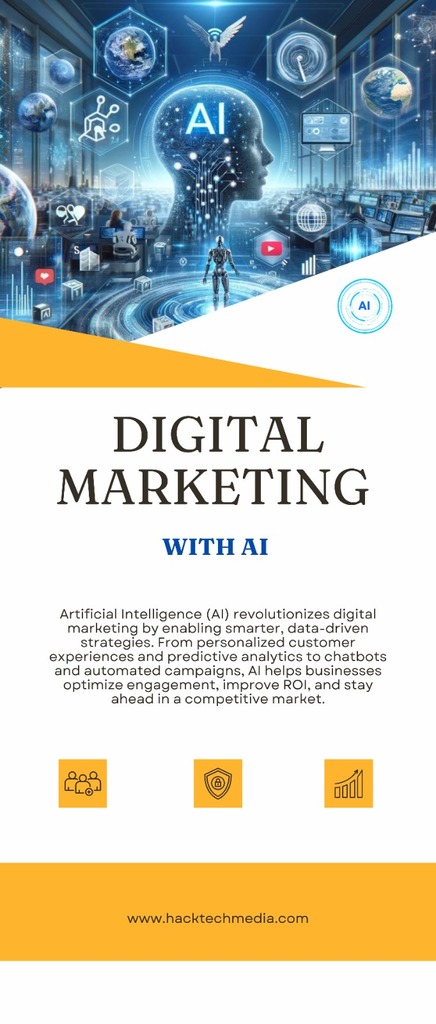
How AI is Improving In the fast-paced world of e-commerce, delivering an exceptional customer experience is paramount for businesses aiming to thrive and remain competitive. Artificial Intelligence (AI) has emerged as a transformative force, significantly enhancing the ways online retailers interact with customers. From personalized shopping experiences to efficient customer service solutions, AI technologies are reshaping the e-commerce landscape. This blog explores various facets of AI’s impact on customer experience in e-commerce, including personalization, chatbots, recommendation systems, and analytics.
The Importance of Customer Experience in E-commerce
Customer experience (CX) encompasses every interaction a customer has with a brand, from the initial discovery phase to post-purchase support. In e-commerce, where physical interaction is absent, delivering an outstanding customer experience is even more critical. Research shows that a positive customer experience can lead to increased customer loyalty, higher conversion rates, and improved brand reputation. As consumers become more discerning and expect seamless interactions, businesses must leverage technology to meet and exceed these expectations.
Personalization: Tailoring Experiences to Individual Customers
One of the most significant advancements AI brings to e-commerce is the ability to personalize the shopping experience. Personalized recommendations and tailored marketing messages can make customers feel valued and understood. How AI is Improving AI algorithms analyze vast amounts of data, including past purchases, browsing behavior, and demographic information, to create a unique shopping experience for each user.
For example, when a customer visits an online store, AI can dynamically adjust the content displayed based on their preferences and behaviors. If a customer frequently buys sports equipment, the website may highlight related products, promotions, and even content like articles about fitness. This level of personalization not only enhances the shopping experience but also drives sales by presenting products that customers are more likely to buy.
Chatbots: Revolutionizing Customer Service
AI-powered chatbots are revolutionizing customer service in e-commerce. These virtual assistants are available 24/7, providing instant responses to customer inquiries and issues. This accessibility improves customer satisfaction, as consumers no longer have to wait for human representatives to assist them.
Chatbots can handle a variety of tasks, including answering FAQs, guiding customers through the purchasing process, and resolving common issues. They can also collect customer feedback, which helps businesses refine their offerings and improve overall service quality. Moreover, by automating routine inquiries, chatbots free up human agents to focus on more complex customer issues, thereby enhancing the efficiency of customer service teams.
Recommendation Systems: Driving Sales Through Intelligent Suggestions
AI-driven recommendation systems are essential for enhancing user engagement and increasing sales in e-commerce. These systems analyze customer behavior, preferences, and past purchases to suggest products that customers are likely to be interested in. How AI is Improving The effectiveness of recommendation engines is evident in the success of major e-commerce platforms like Amazon and Netflix, which leverage AI to enhance user experience.
By presenting relevant product recommendations, e-commerce businesses can encourage cross-selling and upselling. For instance, if a customer adds a pair of shoes to their cart, the recommendation system might suggest matching accessories or complementary items. This not only improves the shopping experience but also increases the average order
AI Analytics: Gaining Insights for Improved Decision-Making
Data is a goldmine for e-commerce businesses, and AI analytics tools help convert raw data into actionable insights. By analyzing customer behavior, purchasing patterns, and market trends, AI can provide valuable information that informs strategic decision-making.
For example, AI analytics can identify which products are performing well, which marketing campaigns are most effective, and where customers are dropping off in the purchasing process. Armed with these insights, businesses can optimize their marketing strategies, improve product offerings, and enhance the overall customer experience. Predictive analytics, a branch of AI, can also forecast future trends, enabling businesses to stay ahead of the competition.
Enhancing User Engagement with AI
User engagement is a critical factor in e-commerce success, and AI technologies play a vital role in fostering it. How AI is Improving Through personalized content, targeted marketing, and dynamic interactions, AI enhances user engagement at every stage of the customer journey.
AI-driven tools can analyze user engagement metrics to tailor content, such as email marketing campaigns, social media ads, and website landing pages. By presenting users with relevant content based on their interests, businesses can keep customers engaged and encourage repeat visits. Additionally, AI can facilitate interactive experiences, such as virtual try-ons and augmented reality features, allowing customers to engage with products in innovative ways.
Automating Customer Service: Streamlining Operations
AI is not just about enhancing customer interactions; it also streamlines e-commerce operations. By automating routine customer service tasks, businesses can reduce operational costs and improve efficiency. For instance, AI can handle order tracking inquiries, returns processing, and inventory management, freeing up human resources for more strategic initiatives.
Automation also helps ensure consistency in customer service. AI systems can deliver accurate information and maintain a uniform tone across all interactions, enhancing brand credibility. This reliability contributes to a positive customer experience, as customers feel confident in the support they receive.
Understanding Shopping Trends Through AI
Staying attuned to shopping trends is crucial for e-commerce businesses. AI technologies enable businesses to monitor real-time market trends and consumer behaviors. By analyzing data from various sources, including social media, search engines, and competitor websites, AI can help businesses identify emerging trends and adjust their strategies accordingly.
For example, during the COVID-19 pandemic, many e-commerce businesses saw a surge in demand for home fitness products. AI tools that track market trends would have allowed businesses to pivot quickly, adjusting their inventory and marketing strategies to capitalize on this shift in consumer behavior.
Case Studies: Success Stories of AI in E-commerce
Amazon
Amazon is a pioneer in using AI to enhance customer experience. Its recommendation engine, which accounts for a significant portion of the company’s sales, analyzes customer data to suggest products tailored to individual preferences. Additionally, Amazon’s Alexa and customer service chatbots exemplify the company’s commitment to using AI for seamless customer interactions.
Alibaba
Alibaba employs AI to optimize the shopping experience for its users. Its AI-driven recommendation system provides personalized product suggestions, while its customer service chatbots handle millions of inquiries daily, ensuring quick and efficient support for customers around the globe.
Sephora
Sephora has embraced AI in its digital strategy by introducing virtual try-on features powered by augmented reality. Customers can see how makeup products look on their faces before purchasing, significantly enhancing the online shopping experience. This innovative approach not only engages customers but also boosts sales by reducing uncertainty.
Future Trends: The Next Frontier of AI in E-commerce
As AI technology continues to evolve, its applications in e-commerce are expected to expand further. Here are some potential future trends:
Enhanced Personalization
AI will likely achieve even deeper levels of personalization, utilizing advanced machine learning algorithms to understand customer preferences in real-time. This could involve integrating data from various channels, such as social media and offline behavior, to create a holistic view of each customer.
Voice Commerce
With the rise of voice-activated devices, voice commerce is set to grow. AI will play a crucial role in optimizing voice search and enabling seamless transactions through voice commands, making the shopping experience more convenient.
Hyper-Automation
Hyper-automation refers to the integration of multiple automation tools and technologies to streamline business processes. In e-commerce, this could involve automating everything from inventory management to customer interactions, creating a more efficient and responsive business model.
Advanced Analytics
The future of AI in e-commerce will likely include more sophisticated analytics tools that provide deeper insights into customer behavior and market trends. These tools will empower businesses to make data-driven decisions that enhance customer experiences and drive growth.
Conclusion
AI is undoubtedly reshaping the e-commerce landscape, providing businesses with the tools to enhance customer experience significantly. From personalized recommendations and efficient chatbots to insightful analytics and automated processes, AI is transforming how brands interact with customers. As technology continues to advance, the potential for further innovation in customer experience is limitless. E-commerce businesses that embrace AI not only improve their operations but also create lasting relationships with their customers, ensuring sustained success in a competitive marketplace.







